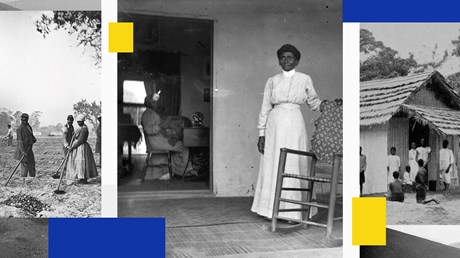How an American school teacher spread God's love in King Leopold's Congo.

At the turn of the 20th century, the Congo Free State was one of the hardest places to be a human. For several decades, Belgian soldiers and business owners brutalized thousands of Congolese locals. They pursued rubber profits at whatever cost, taking the lives of men, women, and children who were forced to serve the whims of King Leopold.
During this time, an American missionary, Maria Fearing, ran Pantops Home for Girls, one of the region’s few places of sanctuary. Using her own salary and donations from her supporters, Fearing created a place in Luebo, Congo, where several dozen girls received a comprehensive education and heard about Christianity for the first time. Fearing’s students nicknamed her Mama wa Mputu (“mother from far away”) to show their love and appreciation.
As a young child growing up enslaved on an Alabama plantation, Fearing had no idea that the God who created her would liberate her from physical and spiritual slavery, or that she would one day travel across seas to the shores of Africa, carrying that message of freedom and new life to those who lived on the same continent as her ancestors.
The “homeland”
In 1836, Mary Fearing gave birth to a baby girl that she and her husband Jesse named Maria (Ma-rye-ah). The Fearing’s lived outside of Gainesville, Alabama and their daughter arrived just shy of thirty years before legal emancipation and the obliteration of the chattel slave system. Historians know little of Maria’s childhood and her family life while she was enslaved, but it’s believed that she had faith in Christ at an early age, as Four Presbyterian Pioneers in Congo and Maria Fearing, A Mother to African Girls both note.
Her family shared Scripture, ...
from Christianity Today Magazine
Umn ministry


.gif)

.gif)
.gif)
